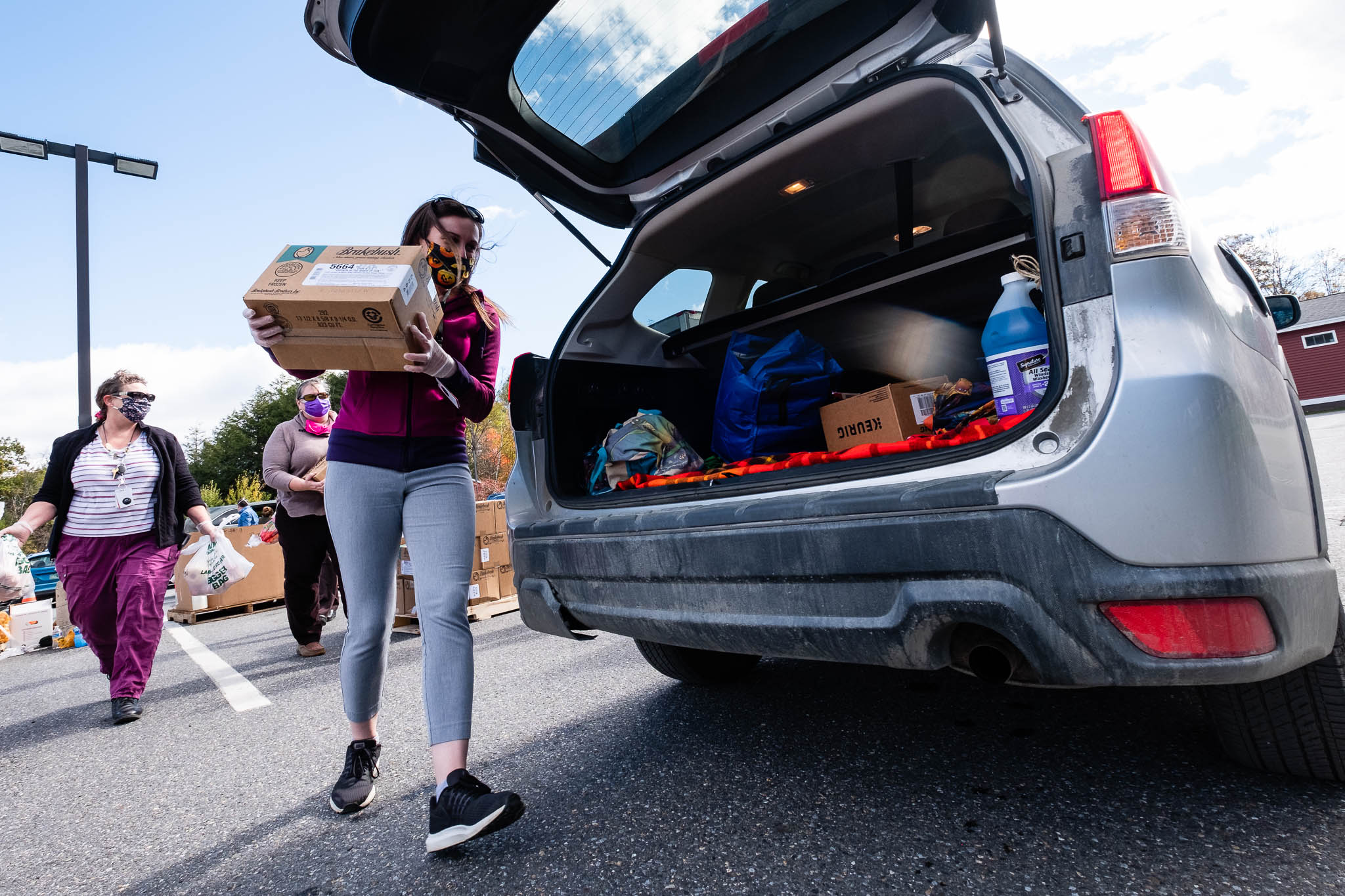A More Inclusive and Welcoming Volunteer Screening Process at Your Foodbank

Over the past several years, the Vermont Foodbank has committed to including and prioritizing diversity, equity, and inclusion (DEI) in organizational structure and programming. To ensure that our daily work and organizational practices are rooted in equity and social justice, it takes dedication and collaboration from every Vermont Foodbank employee and team. Here’s how one Foodbanker, Kate, identified an opportunity for an organizational shift—in volunteer screening policies—to be in better alignment with the organization’s DEI principles.
“Since before my time at the Foodbank, we have been screening volunteers for felonies or misdemeanors on our digital and paper applications,” explains Kate. “However, this practice created several issues: it presented a barrier to volunteering and an opportunity to meaningfully engage with the Foodbank’s mission; screening corporate volunteers put us in misalignment with ‘ban the box’ policies; it wasn’t trauma-informed, often creating very vulnerable moments for volunteers.”
To advance anti-hunger work with attention to how we participate in systems that perpetuate inequality and lack of opportunity, especially amongst marginalized groups, the Vermont Foodbank will no longer be screening for felony or misdemeanors on our volunteer application.
Kate points out that screening volunteers for felonies or misdemeanors doesn’t necessarily create safer environments. To help make sure that the Foodbank is fostering an environment where volunteers, staff, and community members are safe and resourced, the additional changes to the volunteer program have been implemented:
- Vermont Foodbank will require background checks for all volunteers at fresh produce events within 100 yards of a school entrance or if the school partner requests it
- All volunteers making food deliveries in the community will be required to have a background check on file
- Gleaning engagements (volunteer opportunities to harvest produce) will be cancelled if they are one-on-one with a new volunteer that has not yet met with the gleaning manager
- To help everyone feel comfortable in handling a variety of situations, the Foodbank will provide staff with resources and opportunities such as de-escalation trainings, self-defense classes, first-aid and CPR courses, and is considering creative technology solutions like satellite phones for working in remote locations
“Modifying our screening practices can help the Foodbank foster a more inclusive and welcoming volunteer environment,” says Kate, “representative of the beautiful world we live in.”
